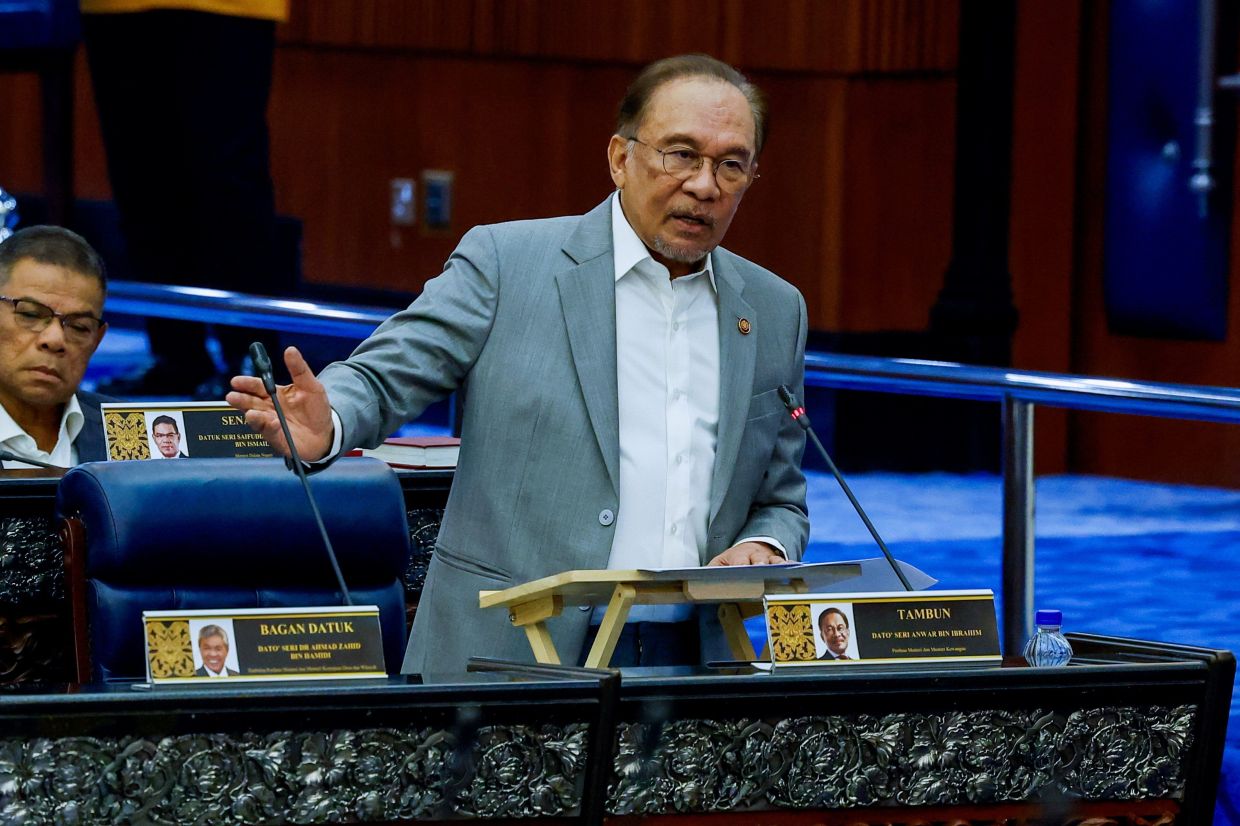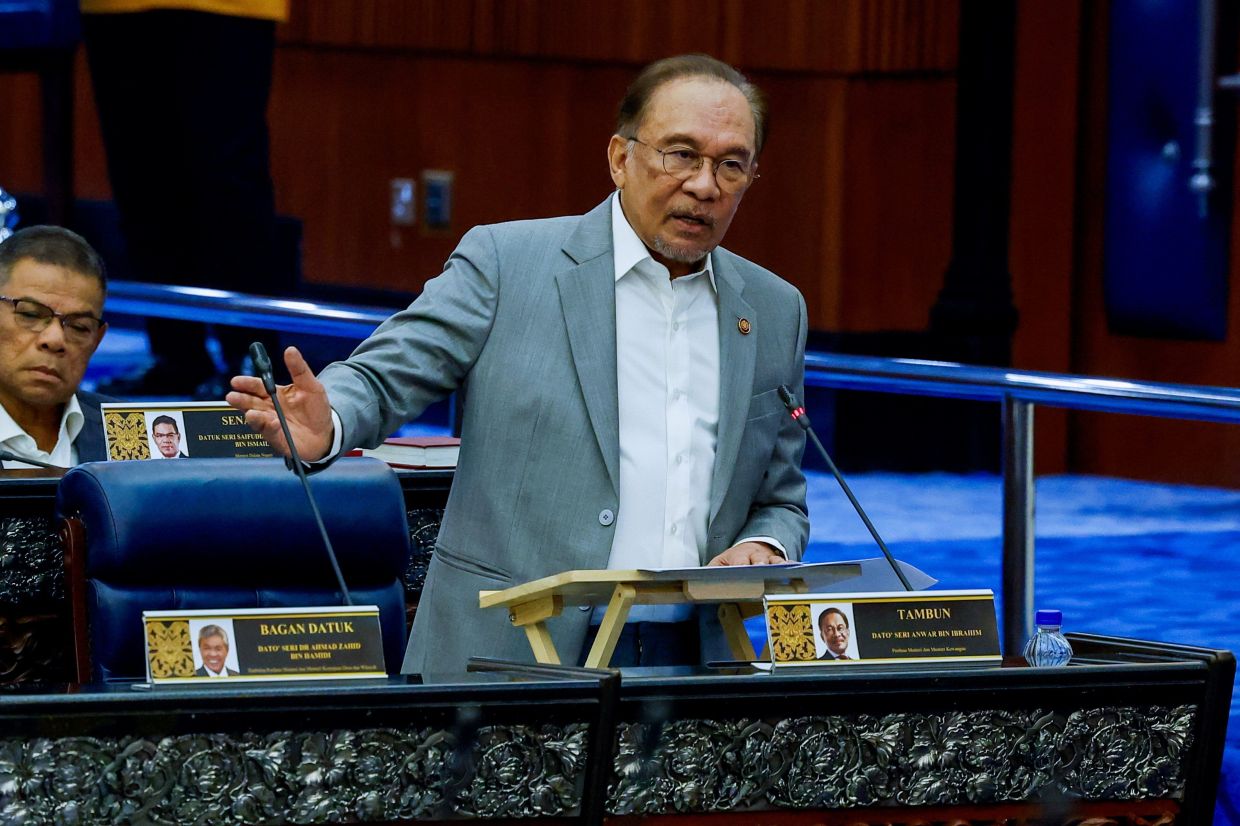
KUALA LUMPUR: Rising government debt is under control and directed towards development rather than operating expenditure, amid scrutiny of Putrajaya‘s fiscal management, says Datuk Seri Anwar Ibrahim.
Responding to concerns over the national debt, the Prime Minister said borrowings were necessary and responsibly managed, with a clear focus on long-term infrastructure and social development, particularly in education, healthcare and underserved areas.
“In macroeconomic terms, national debt is closely linked to the budget deficit. As long as we run a deficit, debt will continue to grow. That’s why our strategy is to reduce the deficit gradualy,” he told the Dewan Rakyat during Minister’s Question Time on Tuesday (Aug 5).
Anwar acknowledged that Malaysia’s debt had grown in line with past deficits, but stressed that this trend is being reversed.
“As we approach the third year of the Madani administration, our commitment to fiscal reform has led to a consistent reduction in the deficit — from 6.4% in 2021 to 5.5% in 2022, 5.0% in 2023, and an estimated 4.1% this year,” he said.
He added that the narrowing deficit has enabled the government to reduce its annual borrowings.
“In 2021, new borrowings were around RM100bil. This fell to RM99bil in 2022, RM92.6bil in 2023, and we expect it to drop further to RM76.8bil in 2024.”
Anwar said the government’s fiscal discipline has made national debt growth more sustainable while boosting investor confidence.
“This growing confidence is clearly reflected in the ringgit’s performance. So far this year, the ringgit has strengthened by nearly 5% against the US dollar, reaching RM4.23 as of Aug 5 — making it one of the best-performing currencies in Asia,” he said.
The government, he said, is committed to reducing the deficit in stages to avoid disrupting essential public spending.
“If we cut too abruptly, critical sectors such as education, Sumbangan Tunai Rahmah (STR), and healthcare would suffer,” he said, noting that education spending has been raised to RM64bil, while the health budget has increased from RM41bil to RM45bil — the highest allocations to date.
“If we don’t make these investments, problems like hospital overcrowding, bed shortages and a lack of doctors and nurses will persist.”
Anwar warned that unchecked spending would lead to unsustainable debt levels.
“If we continue spending recklessly, our debt will balloon. Only a firm and courageous government can make the tough decisions. If we prioritise popularity, the debt will grow and the burden will fall on future generations.”
On the federal debt position, Anwar said total debt is projected to reach RM1.247bil by the end of 2024, or 64.6% of GDP, up from RM1.079bil in 2022.
However, he stressed that the increase is tied to development spending, not day-to-day operations.
“We are not borrowing to fund operating expenditure. We are borrowing — and at a reduced amount — for development. Why? Because of the conditions of our schools, hospitals, rural infrastructure and the urgent need for flood mitigation,” he said.
He added that these priorities are already clearly laid out in the 13th Malaysia Plan (13MP).
Anwar was responding to Datuk Iskandar Dzulkarnain Abdul Khalid (PN-Kuala Kangsar), who had questioned whether the government was managing the debt responsibly given its recent increase.
“This is a fiscally responsible government, and that is why investor confidence — both domestic and foreign — remains strong,” he said.






